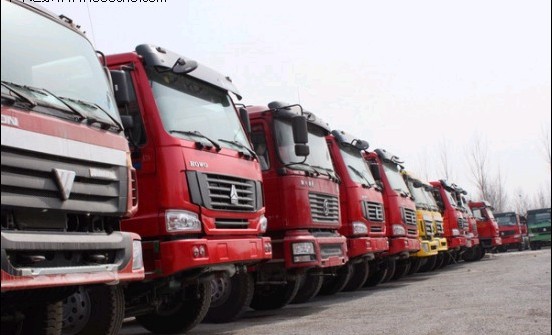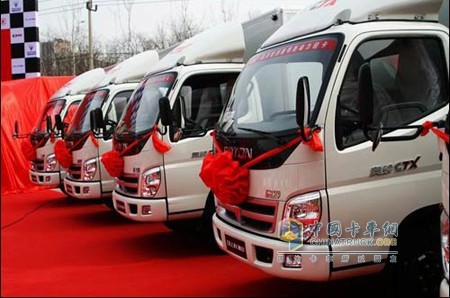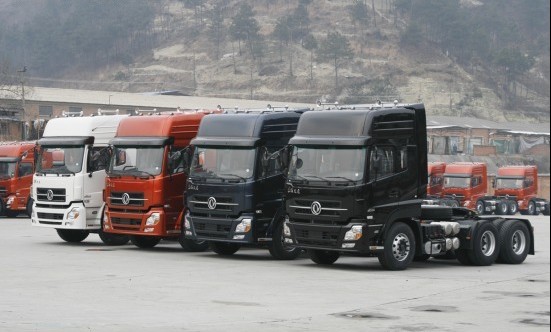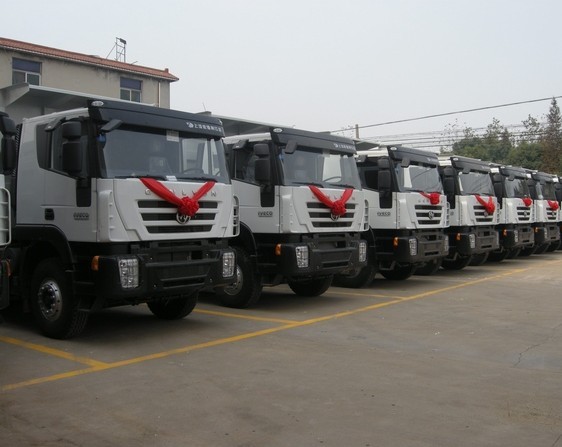National Macroeconomic Policy Impact
1. The country changes its economic growth mode
Macroeconomic control policies have shifted from active fiscal policies and moderately loose monetary policies to proactive fiscal policies and stable monetary policies. Inhibiting inflation has become the primary task of the current macro economy.
2. Influence of implementation of multiple policies such as fuel consumption access
The tightening and gradual implementation of many policies such as fuel consumption management policies for commercial vehicles, access management policies for commercial vehicles, and production consistency management policies have cooled the rapid development of the commercial vehicle market.
3, the car to the countryside trade-in and other policies exit
With the gradual withdrawal of preferential policies such as automobile going to the countryside and trade-in replacement, it also has a certain impact on the sales of the commercial vehicle market.
Rising oil prices increase the cost of crossing the bridge

1. The price of oil keeps rising
Since 2009, the country has made seven adjustments to refined oil prices. Now that fuel costs have accounted for more than 60% of all costs, logistics companies have seen less and less room for oil price hikes.
2, a variety of cross-border tolls burden
In the entire logistics process, profits are excessively tilted toward road traffic and other departments. At present, the gross margin of the logistics industry is generally below 10%. High toll crossing fees and arbitrary fines and overcharging have become a heavy burden on the logistics industry.
3, higher and higher costs of logistics costs
Excessive costs have always been the biggest obstacle to the development and growth of the logistics industry. China's logistics costs are 1-2 times higher than the world average.

Emissions upgrades lead to potential users to buy
Whether it is to continue to choose emission policies, or to purchase trucks with new emission requirements but with higher prices, potential consumers will have this hesitation. Each time the emissions are upgraded, it will lead to market fluctuations.
1. Injury can not afford to upgrade the country IV emissions
The implementation of State IV emission standards for commercial vehicles, especially heavy trucks, has been a long-standing problem. It is expected that the implementation will begin in January 2011. The rumors will be postponed in the first half of 2012 and even pushed into 2013.
2. National Road IV emission promotion roads
It is understood that in the case that China has already implemented the national III emission standards, there are still cases of poor implementation. It is very difficult to enforce the National IV across the country if there are no foundations.

Influence of the international situation
1. The influence of Japan's earthquake
Just like passenger cars, some of the core components of commercial vehicles still need to be imported from Japan. Some domestic companies have adjusted their production capacity or production plans under the influence of economic integration and industrial chain, and they have also demonstrated their performance in the commercial vehicle market. It is to suspend demand.
2. The political turmoil in Middle East in North Africa
The recent turmoil in the political situation in North Africa's Middle East has caused a huge negative impact on the export and assembly production of commercial vehicles in China. Many domestic automobile export enterprises are extremely sensitive to changes in the political and economic situation in these countries, and the current political situation in the major export regions is unstable. The export prospects of commercial vehicles face many uncertainties.

The automotive industry is gradually returning to rationality
1. The auto market returns to rational growth
The slowdown in the sales volume of the auto market in the first half of 2011 was one of the reasons for the rational growth of China's auto market after the farewell policy, and it was also a signal bomb for auto companies to plough the Chinese auto market. After the sturdiness of the auto market in China has skyrocketed, the second- and third-tier cities are expected to become the dominant force in the growth of the Chinese auto market in the future.
2. Decrease annual vehicle growth forecast to 5%
Compared with the expected sales of 10-15% at the beginning of the year, China Automobile Association has recently held a seminar to reduce its previous full-year growth forecast to 5%. This is a more practical and practical mentality. Compared with the high growth in the previous two years, the auto market needs to return to rationality and it needs to exercise internal strength.
Leisuwash specializing in manufacture Automatic Car Wash Machine, Touchless Car Wash , Automatic Touchless Car Wash, touchless car wash equipment, robot car wash, smart car wash system, leisuwash 360, leisuwash leibao 360, laserwash 360, leisuwash touchless car wash machine, leisu wash touchless car wash automatic, leisu wash 360 high pressure touchless car wash equipment, robo car wash, touch free car wash, leisuwash 360 touch free car wash, leisuwash 360 price, automatic car wash price, leisuwash in malaysia, no touch automatic car wash machine.
Leisuwash 360 touchless car wash machine high intelligent high quality, with car wash + car care + drying process totally, each car wash takes time 1 minute to 5 minutes which depends on the car wash mode.
The contactless robotic automatic robot leisuwash 360 is the newest technology of contactless high-speed automatic washing of cars. Fully automated process of contour washing and drying of the car in combination with the technological capabilities of self-service (payment, choice of car wash programs) provide high-quality contactless washing services in the absence of staff.
Machine Car Wash,Leisuwash 360 Plus,Automatic Express Car Wash,Touchless Car Wash
Hangzhou Leisu Cleaning Equipment Co.,Ltd , https://www.sdautomaticcarwash.com